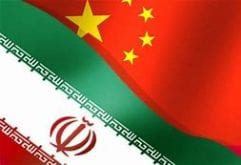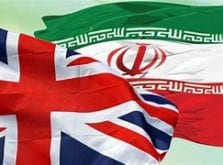Al-Monitor – Four reasons Raisi would sign onto the JCPOA
Iranian President Hassan Rouhani, with less than three weeks remaining in office, has handed over diplomacy on the Joint Comprehensive Plan of Action (JCPOA), the Iran nuclear deal, to his successor, former Chief Justice Ebrahim Raisi, who takes office on Aug. 3.
It was the outcome both Rouhani and US President Joe Biden almost certainly wanted to avoid. The hope was that Aug. 3 would be the deadline for closing the deal, before Raisi takes office. Then Raisi (and the Iranian people) could reap the economic windfall, with lots of obvious credit going to Rouhani and the JCPOA signatories. Winners all around.
So much for that. There is now more uncertainty, of course, as Raisi assembles a cabinet and a new negotiating team, including for the seventh round of nuclear talks in Vienna, reportedly to take place in mid-August.
Our view is that a nuclear deal is still very much on the table, despite more challenging and uncertain circumstances, for four reasons.
- First, the economic payoff may be too great for Raisi to pass up. Iran’s economy went from 13.4% GDP growth in 2017 to two straight years of economic contraction (-6.8% in 2018 and -6% in 2019), according to the IMF, after US President Donald Trump withdrew from the JCPOA in May 2018 and reimposed old sanctions on Iran as well as added new ones. The country’s economy then managed to eke out 1.5% growth in 2020 (one of the few countries to show growth during the global pandemic) and is expected to expand only slightly faster, at 2.5%, this year. To be sure, any growth in these circumstances is testimony to Iranians’ resilience despite the sanctions, COVID-19 and (until recently) low prices for oil, Iran’s main commodity export. A withdrawal of sanctions would provide a powerful lift for Iran’s economy and open the door to Iran’s reintegration into international oil markets and banking systems. It also would clear a path for international investment in Iran’s dilapidated energy sector and infrastructure.
- Second, the Iran nuclear deal still has popular appeal, and Raisi comes to office with at best tepid support and no mandate beyond the essential support of Supreme Leader Ayatollah Ali Khamenei. Iranians have been protesting across the country against power outages during a brutally hot summer. The presidential election was marked by apathy among the electorate and the people’s awareness of the obvious deck-stacking by Khamenei and his conservative acolytes on the Guardian Council, which vets electoral candidates. Only 48.8% of Iranians voted, the lowest turnout since the 1979 revolution, and despite a massive get-out-the vote drive led by Khamenei. Of those, 62% voted for Raisi, and, perhaps as a kind of protest vote, invalid or blank votes came in second at 13% (previous blanks composed only 2.2% of ballots in previous elections), as Sarbas Nazari reports.
- Third, Raisi was careful never to oppose the JCPOA during the presidential campaign, as our Tehran correspondent reported. For example, in the third and final debate of the campaign, Raisi said, “We would definitely abide by the JCPOA in the format that was approved with nine clauses by the supreme leader, as it is a contract and a commitment that governments must abide by.”
- Fourth, Foreign Minister Mohammad Javad Zarif, in his final report on the JCPOA talks as foreign minister, writes that he leaves Raisi with a “framework for a possible deal, which includes Washington lifting most, though not all, of the US sanctions. Iran, for its part, has agreed to voluntarily sign on the to the Additional Protocol and other oversight mechanisms of the International Atomic Energy Agency (IAEA), and would take other steps to bring Iran back into compliance with the JCPOA (Amwaj.media has a summary and analysis of the 256-page report). So, while Raisi may put his imprint on the talks and there is no done deal at this point, the negotiations are, at least from Zarif’s perspective, well advanced.
Rouhani: JCPOA was ‘unprecedented’ success for Iran
As we wrote last month, the JCPOA, at the time of its 2015 signing, was not just the legacy achievement of Rouhani and Zarif; it was the breakthrough diplomatic achievement of Iran since the revolution.
In his final days as president, Rouhani has offered a spirited defense of the JCPOA. On July 14 he said that getting sanctions lifted “was unique and rare in the history of the UN” and hailed the economic progress in 2016-2017 as “unprecedented in the history of the country.”
Rouhani blamed Trump, who he referred to as a “politically insane person,” for the sanctions and setbacks since 2018.
Zarif, in his report, lamented that domestic political infighting over the JCPOA while it was in force may have undercut global investment and trade opportunities. If Iran had done more, in his view, US and “world capitalists” might have allowed Iran to counter Trump’s “maximum pressure” campaign.
The outcome for Rouhani and Zarif is bittersweet, especially if Raisi doesn’t close the deal. The JCPOA became the catalyst for the conservative backlash that has dealt a devastating setback for the Reformists. The Principlists (conservatives) took 221 of 290 seats in the Islamic Consultative Assembly (Iran’s parliament) in 2020, an increase of 138 seats from 2016. The Reformist coalition, led by Rouhani, dropped from 121 seats in 2016 to 20 last year.
Raisi resets expectations in his approach to West
Raisi’s revolutionary bona fides and closeness to Khamenei can’t be discounted. He is not Rouhani, the JCPOA is not his legacy and he will make his mark. He said out of the gate he won’t meet with Biden (although there was no prospect of a meeting).
“It’s possible to foresee that while the decision to engage with the West will not change, the tone, expectations and ceiling are going to see a clear shift,” writes Ali Hashem.
US State Department spokesperson Ned Price said on July 14 that the United States is “prepared to resume indirect talks with Iran … when the Iranians signal they are as well.”
That willingness appears unhindered by charges of a conspiracy by a US federal court against four Iranian nationals for planning to kidnap Masih Alinejad, an Iranian dissident and author who fled Iran in 2009.
In a statement to Al-Monitor’s Elizabeth Hagedorn, Alinejad said, “The agents of the Islamic Republic had employed the services of a private investigator to photograph and videotape me and my family.”
US Iran envoy Robert Malley tweeted that he was “greatly disturbed” by the plot and Price observed, “We will always take action when it’s in our interests and when it’s appropriate to do so.”
There is also some buzz and speculation that a prisoner exchange may be in the works. There are four remaining US-Iranian dual nationals held in Iran. There were 29 Iranian citizens in US jails in 2019, according to the US Bureau of Prisons.
“Iran is ready to exchange all American political prisoners in exchange for the release of all Iranian prisoners who have been detained around the world at the behest of America,” Iran government spokesman Ali Rabiei told reporters on July 13.
While the White House says the release of all US citizens is a top priority, Babak Namazi told Elizabeth Hagedorn that he worries his brother Siamak and father Baquer, two of the remaining four, could once again be left behind. “That fear is ever present, irrespective of what assurances one receives,” he said.
 Shabtabnews In this dark night, I have lost my way – Arise from a corner, oh you the star of guidance.
Shabtabnews In this dark night, I have lost my way – Arise from a corner, oh you the star of guidance.



